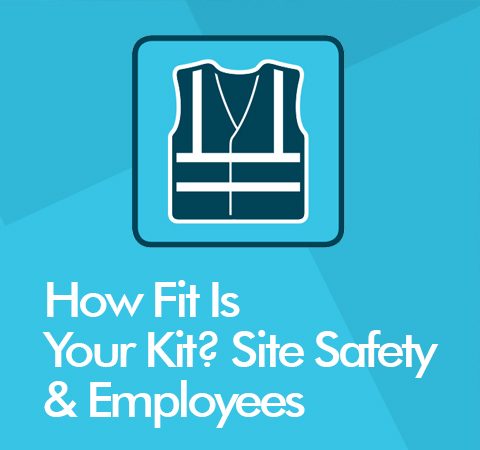How is EN ISO 20471 Tested?
Written By
Thumbs-Up2017.03.02

High visibility clothing is subjected to numerous tests of both the component materials and final garment to ensure that it will perform when it matters most. Some of the key tests performed are outlined below:
Fabric Strength
No matter what fabric a high visibility garment has been made from, it is essential that it is robust enough to withstand the stresses of use. It is for this reason that component fabrics are tested for their burst, tensile or tear strength (dependent on the fabric type).
Colour Fastness
Understandably, there is little point in assessing the compliance of high visibility fabric colour if everyday factors such as washing and sunlight subsequently cause the colour to fade. As a result, the colour of the garment is assessed following a series of wash cycles and exposure to a Xenon arc lamp to ensure that appropriate protection will be provided throughout the lifetime of the garment.
Colour Assessment
There are three colours defined as suitable for use as high visibility clothing: yellow, orange-red and red. These colours are checked using a spectrophotometer to check that they fall within the dedicated colour co-ordinates and meet with the minimum luminance requirements defined in the standard. Colour assessment takes place on both samples of new fabric and samples of fabric that have undergone washing and Xenon arc exposure.
Dimensional Stability
Garments are subjected to a series of wash cycles to assess whether or not they can withstand domestic, industrial or dry cleaning procedures. The manufacturer requests the specific washing instructions, providing they fall within the minimum requirements outlined by the standard. As such, details of suitable washing methods for the particular garment can be found on the product washcare label.
Tape Testing
The reflective tape used on high visibility clothing is tested for its light reflective qualities at different distances and angles. A photometer measures the amount of light reflected back to the point of origin by new and pre-treated samples of tape, thus ensuring a minimum level of visibility is maintained.
Garment Assessment
The standard dictates various design requirements that must be present within high visibility garments –for example, there are instructions regarding tape placement and spacing which must be adhered to. As a result, a comprehensive garment assessment is performed to confirm whether or not the product is compliant in accordance with the standard. The process also results in final classification of the item –with Class 1 offering the lowest level of conspicuity, and Class 3 providing the highest.
Chemistry Testing
As all products will likely come into contact with an individual, materials used within any PPE product must not contain any chemicals that may be harmful to the wearer. As a result, tests are performed to ensure that no prohibited chemicals are present, or that other specified chemicals are present within acceptable limits.
-
2019-08-08Site safety is one of, if not the, most important aspects of working within the commercial and industrial sector. PPE is intrinsic to safe working practice on site – yet it can often be misused,
-
2019-07-02Thumbs-Up Safety Guide to helping you make the right choices when supplying PPE and workwear Foreward For starters, when it comes to specifying and purchasing PPE products
-
2018-05-18Hazards of varying degrees of severity are present in almost all workplaces – whether its falling objects, moving vehicles, chemicals, noise or a myriad of other dangers.
 Mon - Fri:9AM-5:30PM
Mon - Fri:9AM-5:30PM





































